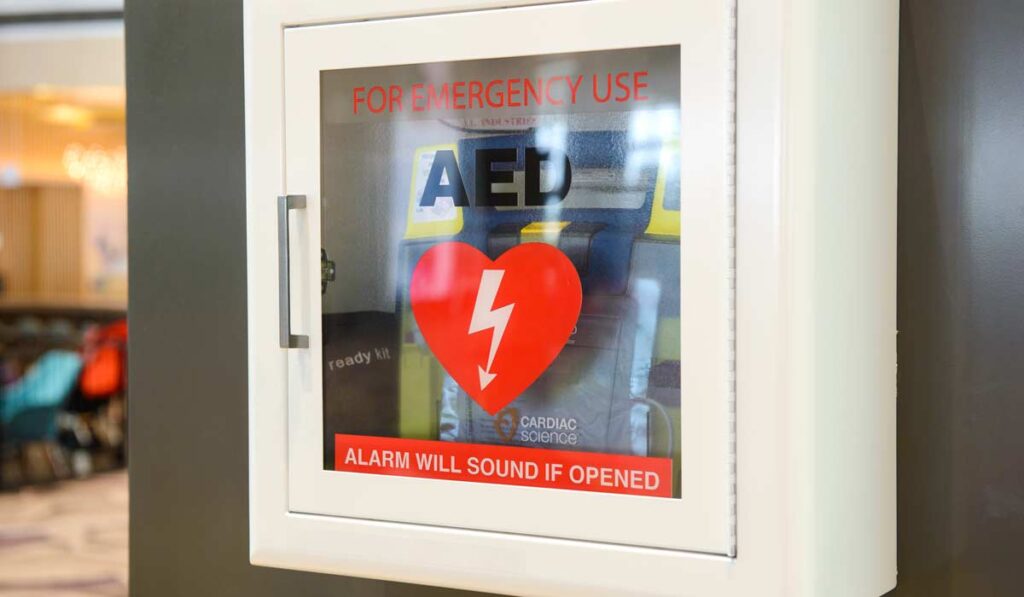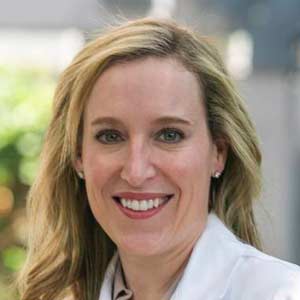Monroe Carell Jr. Children’s Hospital at Vanderbilt has joined a nationwide network of more than 25 hospitals in a push to prevent sudden cardiac deaths in the community.
“As a region, we need to be more prepared to get victims of arrest resuscitated on site and to a center for diagnosis and treatment. If we can do that, we know more children and teens will survive,” said English Flack, M.D., a pediatric cardiologist at Vanderbilt and medical director of Project ADAM Middle Tennessee.
Through Project ADAM (Automated Defibrillators in Adam’s Memory), Children’s Hospital has helped nearly 400 schools in middle Tennessee earn “Heart Safe” designation – meaning the schools not only have automatic external defibrillators (AEDs) readily accessible, but that staff have been trained on their use and how to respond to emergencies.
“We need to be more prepared to get victims of arrest resuscitated on site and to a center for diagnosis and treatment.”
“It’s not enough to know where the AED is in a building,” said Angel Carter, R.N., the program coordinator for Project ADAM at Children’s Hospital. “There has to be a planned response and intentional preparedness.”
Earning Buy-in and Training
Since earning Project ADAM affiliate status in 2017, Children’s Hospital has trained more than 4,000 school staff members across 41 counties. Training sessions, Carter says, center around awareness and empowerment.
“I usually ask for a show of hands of how many people even know if their site has an AED and where it is. It’s often a surprisingly low number,” Carter said. The initial conversations then open the door for specific training related to AED placement, CPR, setting up an emergency response team and preparing a comprehensive plan.
“It’s less about AED drills and more about empowering teachers and other youth workers to save a life,” Carter said. “They need to know why this is important.”
Identifying Stakeholders
“The toughest part is getting the attention of the right people,” Flack added. “To establish the Vanderbilt program we had to meet with affiliates across the nation, determine the general level of resources present in schools and create a budget. We worked with East Tennessee Project ADAM on a pilot program in our area that was successful before presenting to hospital administration. Overall it was about a two-year process.”
The team was emboldened by recent Tennessee legislation requiring public schools to have AEDs and a plan for emergencies. However, the law states private schools are only “encouraged, within budgetary limits, to place [AED] devices in schools.” Carter says it can take time to determine who oversees emergency activities within different kinds of schools.
“There isn’t always a school nurse for every building,” she said. “It takes persistence to delve into organizational structures and identify key stakeholders.”
“It takes persistence to delve into organizational structures and identify key stakeholders.”
Carter attends educator conferences, sends out newsletters and also cold calls schools that have not yet earned Heart Safe designation, offering Project ADAM’s free CPR and AED support. “It’s important to note they aren’t required to use us. I’m not selling AEDs, we just want to make sure they know support is available,” she said.
A Success Story
Project ADAM Middle Tennessee was recently put to the test when a 16-year-old collapsed at a high school cross country practice. Just two weeks prior, coaches and school staff had participated in AED training with Carter.
The training enabled bystanders to not only recognize the cardiac arrest, but to rapidly retrieve the AED and deliver a life-saving shock within minutes. The teen survived. Without proper resuscitation, most pediatric victims of cardiac arrest do not survive.
“Now at our trainings, we can talk about these events in a very real way. We have a success story that helps people engage and take it seriously,” Carter said.
Added Flack, “We’re also finding the training is preparing schools for other emergencies. Another school was able to respond to a student choking in the lunchroom – all because that school had received our training and had an emergency response plan in place.”
“We’re also finding the training is preparing schools for other emergencies.”
Project ADAM Middle Tennessee is currently offering socially distanced training in accordance with COVID-19 guidelines.







